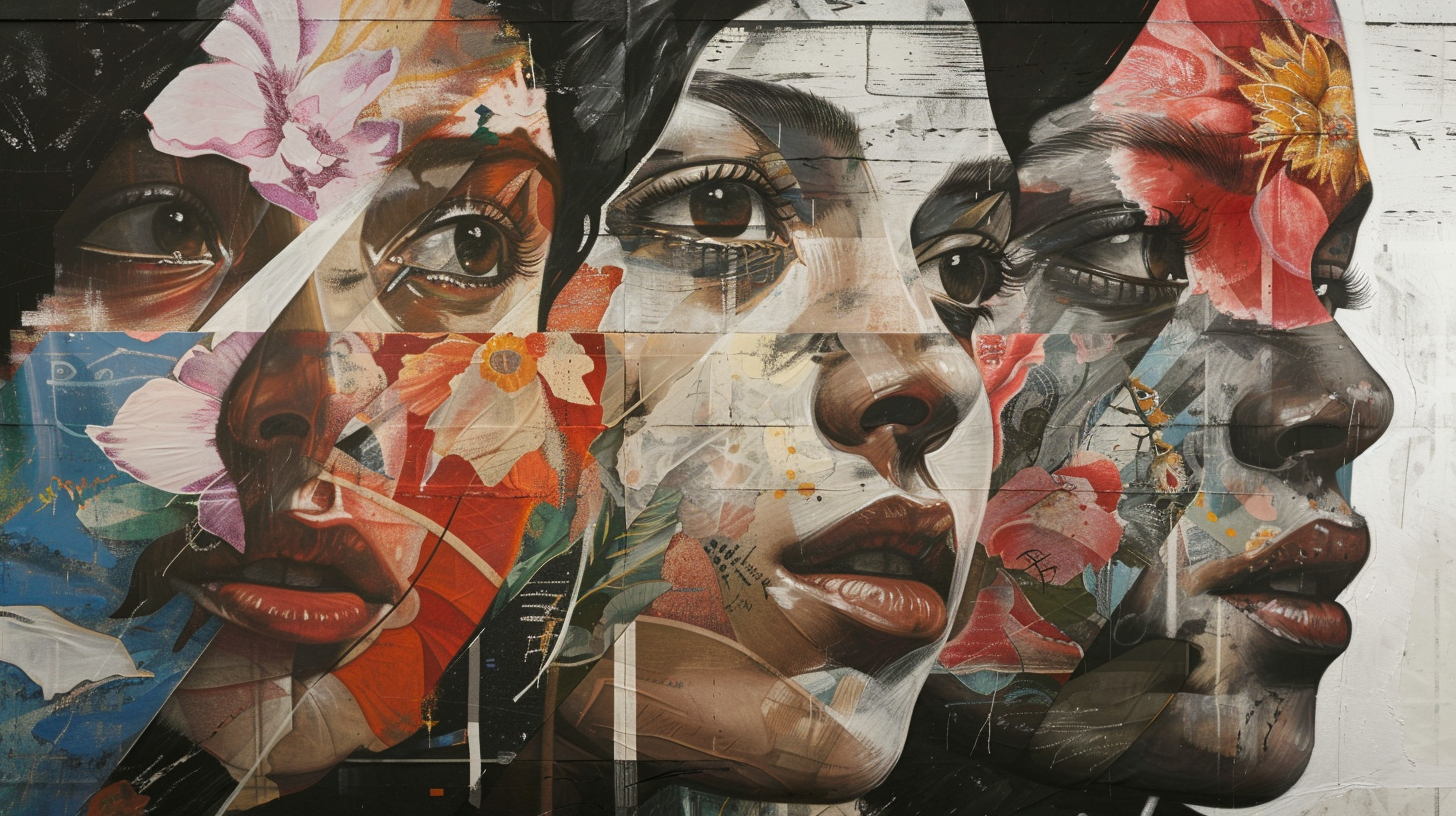Table of Contents Show
Isn’t it time we talk about the elephant in the room? We often celebrate the physical prowess of professional athletes, marveling at their achievements without a second thought to the immense pressure they’re under. It’s not just about the physical demands; the mental strain can be overwhelming, yet it’s seldom addressed with the seriousness it deserves. As we peel back the layers of competition, media scrutiny, and the stigma surrounding vulnerability, we find ourselves at a critical juncture. It’s imperative we explore how these factors converge, not only to understand the breadth of the issue but to uncover what lies beneath the surface.
Key Takeaways
- Athletes face mental health challenges due to performance pressure and public scrutiny.
- Stigma within sports culture discourages athletes from discussing mental health issues.
- Support systems, including psychological services, are essential for athletes’ mental resilience.
- Advocacy and industry changes aim to destigmatize mental health and prioritize athlete well-being.
The Hidden Battle
Beneath their physical prowess, many athletes quietly struggle with mental health challenges, fighting a hidden battle that fans seldom see. It’s a hidden struggle, one that clashes with the commonly held belief that strength and vulnerability can’t coexist. We’re here to shatter that myth, to shine a light on the truth that acknowledging and addressing mental health is a sign of true strength, not weakness.
This silence around mental health issues isn’t just a personal choice; it’s often enforced by the fear of stigma, the pressure to perform, and the expectation to embody perfection. We’ve seen time and time again how this silence can weigh heavily, making the journey to seek help a lonely trek. But we’re at a turning point, recognizing that freedom comes not from hiding our struggles but from confronting them head-on.
As fans, we adore our athletes for their victories and physical capabilities. Yet, we must champion their right to mental wellness with the same fervor. To foster a culture where athletes can freely express their vulnerabilities without fear of judgment or repercussion is crucial. This shift doesn’t just liberate them; it frees us all to embrace a more compassionate, understanding perspective towards mental health.
We’re advocating for a world where athletes don’t have to fight their battles in the shadows, where they’re supported and encouraged to seek help whenever they need it. This fight for freedom and understanding in mental health is one we’re committed to, knowing that it will pave the way for a healthier, more resilient sporting community.
Athletes’ Mental Health Crisis
Acknowledging the pervasive silence, it’s imperative we now address the unfolding mental health crisis among athletes. This crisis, long shrouded in secrecy, demands our immediate attention and action. It’s time to break the stigma and bring to light the struggles that many athletes face behind their physical prowess and public personas.
We’re witnessing an alarming increase in reports of anxiety, depression, and other mental health issues among professional athletes. The pressures they endure aren’t just crucial; they’re psychological and emotional too, often stemming from expectations to perform at peak levels consistently, media scrutiny, and the fear of career-ending injuries. These challenges can create a suffocating environment where mental health concerns are sidelined or ignored.
We must advocate for a culture shift within the sports industry, one that prioritizes mental well-being as much as physical fitness. It’s essential that athletes have access to mental health resources and support systems that recognize and address their unique needs. Creating an environment where athletes feel safe to speak up about their struggles is the first step towards freedom from the chains of mental health stigma.
Let’s not forget, athletes inspire us with their dedication and achievements. It’s only fair we support them wholly, recognizing that their mental health is as crucial as their physical performance. By acknowledging and addressing this crisis, we’re not just aiding individuals; we’re transforming an industry. It’s time we champion a more compassionate and understanding approach to mental health in sports, ensuring athletes have the freedom to thrive both on and off the field.
The Role of Competition
In the world of professional sports, competition acts as both a driving force and a significant source of mental strain for athletes. We recognize the thrill and glory of victory, pushing ourselves to our limits to achieve greatness. Yet, there’s no denying that this relentless pursuit often comes with a heavy mental toll. The pressure to continuously outperform not only others but also ourselves can lead to a cycle of stress, anxiety, and, in some cases, burnout.
We’re all chasing freedom in our careers—freedom to play our best, to be on top, and to enjoy the game we love. However, the competitive nature of sports sometimes feels like it’s boxing us in, limiting this very freedom we seek. It’s a paradox that we live every day.
The constant comparison, the fear of not meeting expectations, and the dread of losing what we’ve worked so hard for weigh heavily on our minds. We find ourselves in a high-stakes environment where every move is critical, and every failure is a hard hit to our confidence and mental well-being.
Acknowledging the role of competition is important in addressing the mental health crisis among athletes. We need to strike a balance—fostering a competitive spirit that motivates but doesn’t destroy. It’s about creating an environment where we can aim for excellence while also caring for our mental health. We’re in this together, seeking a way to navigate the pressures of competition while holding onto our love for the sport and the freedom it brings to our lives.
Media Pressure and Public Scrutiny
We can’t overlook how the relentless glare of media attention and the harsh judgments of the public add another layer of stress to our lives as athletes. Every move we make, on and off the field, is scrutinized, magnified, and often misconstrued, creating an environment where freedom feels like a distant dream. This intense spotlight doesn’t just fade away when the game does; it follows us, impacting our mental health and well-being.
The media’s portrayal of us often feels like a double-edged sword. On one hand, it’s a platform to inspire and connect with fans. On the other, it’s a source of undue pressure. We’re expected to be perfect, to never falter, and to always win. But that’s not reality. We’re human, we make mistakes, and we face defeats just like anyone else. Yet, the expectation to constantly excel is suffocating, leaving little room for error or growth.
- The fear of making a mistake that becomes tomorrow’s headline haunts us, even in our sleep.
- Every loss, every error, is not just a personal setback but a public spectacle, dissected and discussed by millions.
- The constant scrutiny makes us question our every decision, leading to a cycle of doubt and hesitation that can be crippling.
We yearn for the freedom to play, to express ourselves, and to grow without the weight of the world on our shoulders. Yet, this environment of media pressure and public scrutiny often feels like a cage, limiting our ability to truly soar.
The Stigma of Vulnerability
We’ve seen how cultural expectations in sports and athletes’ fear of judgment contribute to the stigma of vulnerability. Breaking this silence and seeking help are critical steps we must encourage. Together, we can shift the narrative and support athletes in acknowledging their mental health needs without fear.
Cultural Expectations in Sports
Cultural expectations often push athletes to mask their vulnerabilities, fostering a stigma around expressing mental health struggles. We’re taught to prize physical prowess above all, leaving our mental health in the shadows. This silence has real costs:
- Young athletes grow up believing showing emotion is a sign of weakness.
- Fans and media celebrate the "tough it out" mentality, inadvertently marginalizing those who speak up.
- The narrative that champions only those who never falter under pressure creates an unrealistic and dangerous ideal.
We’re in this together, seeking a world where expressing vulnerability isn’t seen as a failure but as a brave step towards genuine resilience and freedom. It’s time we challenge these outdated norms and embrace a culture that supports our holistic well-being.
Athletes’ Fear of Judgement
Athletes often fear judgment from peers, coaches, and fans, making them hesitant to reveal their mental health struggles. This fear shackles us, keeping our struggles hidden, as we’re trapped in a cycle of silence. We’re conditioned to believe that showing vulnerability equates to weakness, a misconception that’s magnified in the high-stakes world of professional sports. It’s a double-edged sword; we’re celebrated for our physical strength and endurance but are expected to maintain a facade of mental invincibility. This stigma not only isolates us but also discourages us from seeking the support we need. We’re caught in a paradox, where the pursuit of freedom in our careers ironically binds us to a narrative that denies our humanity.
Breaking Silence, Seeking Help
In confronting the stigma of vulnerability, we’re taking the first essential steps toward breaking the silence and seeking help. It’s a journey that demands courage, but we’re not alone. By sharing our struggles, we’re forging a path to freedom, one where mental health is as important as physical fitness.
- We’re embracing our vulnerabilities, not as weaknesses, but as strengths that unite us.
- By seeking help, we’re setting ourselves free from the chains of silence and isolation.
- Every story shared is a beacon of hope for someone else feeling trapped.
This movement isn’t just about individual battles; it’s about changing the game. Together, we’re building a culture where asking for help isn’t a sign of defeat, but a bold step toward victory.
Support Systems in Sports
Support systems play an important role in the mental resilience of professional athletes, offering them the necessary resources to navigate the pressures of their careers. We’re talking about a network that’s not just limited to coaches and teammates, but extends to family, friends, sports psychologists, and even fans. These pillars of support provide a foundation that allows athletes to express their vulnerabilities without fear of judgment, ensuring they don’t feel isolated in their struggles.
We’ve seen firsthand how open conversations about mental health within teams can greatly reduce stigma. It’s about creating an environment where seeking help is not only accepted but encouraged. This shift towards prioritizing mental well-being alongside physical fitness is a reflection of the evolving understanding of what it truly takes to support our athletes.
Additionally, the role of sports organizations cannot be understated. By implementing mental health programs and ensuring easy access to professional help, they’re acknowledging the complexity of the challenges their athletes face. It’s a statement that an athlete’s value isn’t solely based on their performance but also their overall well-being.
To conclude, we believe in the power of community. When fans show empathy and understanding towards athletes facing mental health challenges, it reinforces the message that it’s okay to not be okay. This collective support system plays a critical role in breaking down barriers and fostering an environment where athletes can thrive, both on and off the field.
Strategies for Resilience
Building resilience is key to managing the intense pressures faced by professional athletes, requiring a combination of mental, emotional, and physical strategies. We’ve seen firsthand how the relentless demands of professional sports can take a toll. That’s why we’re committed to implementing strategies that not only bolster our mental fortitude but also affirm our right to mental freedom and emotional well-being.
We’ve embraced a set of strategies that empower us to navigate the high-stakes environment of professional sports with confidence and poise:
-
Regular Mental Health Check-Ins: Just as we wouldn’t ignore a physical injury, we can’t overlook our mental health. Setting aside time for regular check-ins with psychologists or mental health professionals helps us stay in tune with our emotional state, ensuring we’re addressing any issues before they escalate.
-
Mindfulness and Meditation Practices: Engaging in mindfulness and meditation has been a game-changer. These practices ground us, helping to clear our minds of the clutter and noise that can distract us from our goals. They remind us that we’re in control of our thoughts and reactions, granting us the freedom to choose how we respond to pressure.
-
Physical Wellness and Nutrition: Never underestimate the power of physical well-being on mental health. A balanced diet, regular exercise, and sufficient rest are non-negotiable for us. They provide the energy and stamina we need to face challenges head-on, ensuring we’re physically and mentally prepared for whatever comes our way.
Prominent Cases and Testimonies
We’ve seen how resilience strategies can support athletes, but let’s now turn our attention to the real-life struggles and high-profile testimonies that shed light on the mental health challenges they face. The impact of public scrutiny cannot be underestimated, as it adds a significant layer of pressure. Through exploring these prominent cases, we’ll better understand the vast scope of mental health issues in sports.
Athletes’ Mental Health Struggles
Often, professional athletes face immense mental health struggles, as evidenced by numerous high-profile cases and personal testimonies. We’ve seen how the weight of expectation, the fear of failure, and the relentless media scrutiny can push athletes to their mental limits. It’s a battle often fought in silence, overshadowed by their physical prowess.
- The overwhelming pressure to continuously perform at peak levels, despite personal struggles.
- The isolation felt when the world sees you as a symbol of strength, making it harder to seek help.
- The stigma associated with mental health in sports, which discourages open conversations.
We’re advocating for a culture shift that celebrates vulnerability as much as victory. It’s about ensuring athletes know they’re not alone, promoting a sense of freedom from the constraints of their mental battles.
High-Profile Testimonies
Courage and vulnerability take center stage as numerous athletes step forward with their personal mental health struggles, shining a light on the often hidden battles within professional sports. We’ve witnessed a transformative shift in how mental health is perceived, thanks to these brave individuals. Icons from various disciplines, including basketball, tennis, and swimming, have publicly shared their journeys, breaking long-standing stigmas and encouraging others to seek help. Their stories aren’t just about endeavors; they embody resilience, hope, and the undeniable fact that mental health challenges spare no one, regardless of their physical prowess or public persona. It’s a powerful reminder that we’re all human, endeavoring for well-being in and out of the arena, championing the freedom to be vulnerable and strong simultaneously.
Impact of Public Scrutiny
In the glare of the public eye, athletes face immense scrutiny that deeply impacts their mental health, with several high-profile cases bringing this issue to the forefront. We’ve witnessed heart-wrenching stories of athletes crumbling under the weight of expectations and the harsh spotlight. This isn’t just about playing the game; it’s about battling unseen pressures that can break even the strongest spirits.
- The fear of making mistakes that becomes a suffocating shadow, robbing athletes of their joy in the game.
- The relentless criticism on social media that feels like a thousand cuts, bleeding confidence away.
- The isolation felt when the whole world seems against you, a loneliness that’s hard to escape.
It’s time we champion their freedom to thrive, not just survive.
Moving Forward: Industry Changes
We’re witnessing an unprecedented shift in how the sports industry addresses mental health, with a growing emphasis on inclusive support systems for athletes. It’s clear that the days of sidelining mental well-being are behind us, and we’re moving towards a future where athletes’ mental health is as paramount as their physical prowess. This change isn’t just necessary; it’s overdue.
We’ve started to see leagues and teams implementing programs aimed at providing psychological support, stress management training, and resources for dealing with the unique pressures of professional sports. It’s a step in the right direction, acknowledging that athletes aren’t just entertainers; they’re individuals facing immense pressures that can weigh heavily on their mental health.
Furthermore, there’s a growing movement to destigmatize mental health issues within the sports community. Initiatives are encouraging open conversations, making it easier for athletes to speak up without fear of judgment or repercussions on their careers. This openness is essential for breaking down barriers and ensuring athletes receive the support they need.
We’re also seeing an increase in the use of performance psychologists and mental health professionals who work directly with teams and athletes. Their presence is a sign of the industry’s commitment to treating mental health with the seriousness it deserves.
As we move forward, it’s essential that these changes aren’t just temporary fixes but part of a long-term strategy to prioritize mental health in sports. We’re on the right path, and with continued effort, we can guarantee that our athletes thrive both on and off the field, enjoying the freedom to pursue their careers without the added weight of unaddressed mental health issues.
Conclusion
We’ve journeyed through the shadows, revealing the mental health battles that our athletes face. It’s clear that the pressure cooker of competition, media scrutiny, and the stigma around vulnerability demands a shift. ‘A chain is only as strong as its weakest link,’ and in sports, supporting mental health strengthens the entire industry. We’re advocating for resilient support systems, proactive strategies, and a culture change. By standing together, we can transform the narrative and guarantee our athletes thrive, not just survive.







